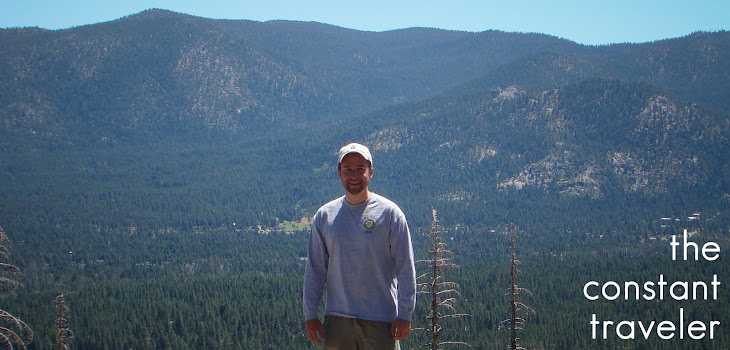Last week I had the unique opportunity to attend a special reception at the US Ambassador to Tunisia's home in Sidi Bou Said on the day of President Obama's speech in Cairo, Egypt. Attending the ceremony was the executive staff of the US Embassy, Department of State interns, Tunisian Fulbright Language Tutors, and myself and my CLS program--all people deeply invested on the subjects the President remarked on. In the conversations I had with these people, I arrived at an insight on the future of America--a future that I and the other young adults at the reception would soon oversee.
We are entering the Post-American World: a term coined by journalist Fareed Zakaria to explain the new era in which the US is no longer a hyperpower head-over-heels over everyone else. India, China, Brazil, and other rapidly developing nations will soon reach a level of close to even competition with our economy. While this may seem intimidating to Americans who have lived through close to 30 years on top of the world, it is in fact an opportunity. But it is an opportunity we must soon seize, for there is a time limit that, if passed, the Post-American World will not include the America that we truly desire.
What is that America? I hope I am not alone in thinking that in recent decades America has undergone an identity crisis. We no longer know who we are, and what we stand for as a nation. Once, we had the prestige of the world for three central aspects of our identity: First, for our freedoms of thought and tolerance of beliefs; second, for the tools we give to our citizens--all of us an immigrant--to climb the ladder of potential to our highest peaks; and finally, the strength and willful resolve to stand, as George Washington advised us to do, as a neutral nation that did only what it had to do, not what it should do.
These three aspects of our identity have faded into the fabric that once was America. Now we are a nation that values the will--or tyranny, as Jefferson once said--of the majority over individual freedoms such as marriage or wearing religious clothing like hijab. Now we are a nation that tries to deny its immigrant heritage by making immigration inhumane, near impossible, and most terribly, without regard to basic human dignity--a condition that made the British colonists immigrate to America over three hundred years ago. Now we are a nation that intervenes in the affairs of other countries as if we had total and complete jurisdiction--all in the name of doing "what we should be doing" like "spreading/keeping democracy safe" or other subjective banners that, as we see in the disastrous ideological wars of Vietnam and Iraq, end up making us look arrogant in the eyes of the world.
There is a fourth aspect that perhaps will make or break our future. When the Founding Fathers sat amongst each other on Day 1 at the Constitutional Convention, the great experiment of America sitting on a blank piece of parchment, despite all of the knowledge and political philosophy each of them possessed, if they lacked one essential thing, we would not have America today. I am talking about the will; the desire, the want. They wanted peace. They wanted tolerance. They wanted representation instead of majority or one-man majority tyranny. They wanted people to come from all across the globe to participate in the great experiment. Above all, they wanted to succeed.
The three other aspects of identity, and, indeed, our very future, hinges on what we want America to be. How can we determine what we want? We must look at our heritage, and see what our Founders wanted. We must look at our mistakes in the past 240 years, and see if we want to continue making them without regard to their lessons. We must look at our present, and see our shortfalls before they become long-falls and lead our children down a road we do not want them to take.
I use the term "want" in a generational context. For my generation is a generation of "wants" instead of "needs", because we have everything and then some at our fingertips. In reality, we "need" to reshape our American identity. But this verb has no impact on a generation who finds motivation only in what we desire. If we had lived through a Depression, World Wars, or other tragic events that made us realize how interdependent we all really our to each other, things might be different.
We all know we must reshape our identity. But we lack the motivation. I will work as hard as I can to motivate my generation and others to want this. Ghandi may have said, "Be the change you wish to seek", but he left out the most important part: The change you seek will not happen, until you convince others to seek it too.
Tuesday, June 9, 2009
Subscribe to:
Post Comments (Atom)


Mumtaz. Great insight into world events and very humbling experience of A Californian student. I learnt something more about America
ReplyDeleteHouda Mezioudet
Tunisian Fulbrighter (Virginia: 2007-2008)
houda.mzioudet@gmail.com
Very interesting. Was thinking about this the other day myself, but when I saw the term Post-America I was a little shocked nonetheless. Makes me happy that I have dual citizenship. As the world gets more fluid we need to be more fluid just the same.
ReplyDelete-Felix